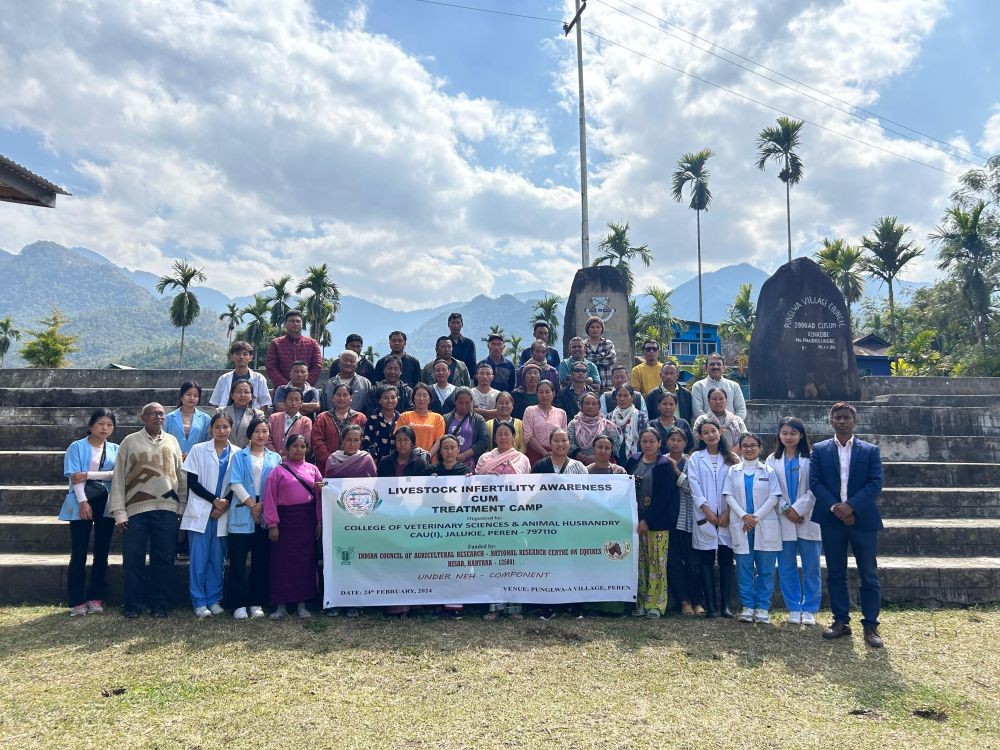Farmers, resources persons and other officials during a free ‘Livestock Infertility Awareness cum Treatment Camp’ conducted by College of Veterinary Sciences and Animal Husbandry Central Agricultural University (I), Jalukie at Council Hall, Punglwa-A village on February 24. (Photo Courtesy: CVScAH Jalukie)

Jalukie, February 25 (MExN): The College of Veterinary Sciences and Animal Husbandry (CVScAH) Central Agricultural University (I), Jalukie conducted a free “Livestock Infertility Awareness cum Treatment Camp” at Council Hall, Punglwa-A village on February 24.
A total of 58 participants (44 farmers and 14 officials) attended the camp.
Among others, free reproductive health check up of cows through per rectal examination, castration & hernia operation in pigs, wound dressing and dog vaccination against rabies were performed during the camp.
Vitamins, mineral mixtures, anthelmentics, antibiotics and other veterinary medicines were distributed to the needy farmers covering a total of 580 livestock including 38 cattles, 47 buffaloes, 133 pigs, 26 dogs, 36 cats and 300 poultries.
As per a press release from the institute, the camp, funded by ICAR-National Research Centre on Equines, Hissar, Haryana under NEH-Component, was led by Dr Tukheswar Chutia, Assistant Professor, department of Veterinary Gynaecology and Obstetrics and supervised by Dr I Shakuntala, the Dean of CVScAH.
Earlier, Dr A Palanisammi, Professor, Department of Veterinary Gynaecology and Obstetrics, welcome the farmers and gave emphasis to acquire knowledge and benefit from the programme through active participation.
As a part of the programme, a technical session was held under which various topics related to livestock infertility and diseases were delivered by different resource persons followed by a separate farmer-scientist interaction.
Some of the topics included ‘Infertility issues in livestock, its impact and management;’ ‘Parasitic diseases affecting animal reproduction and its management”; ‘Common animal diseases in Nagaland, Prevention & Treatment; and ‘Zoonotic Diseases of Public Health Importance.’



